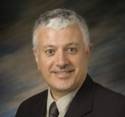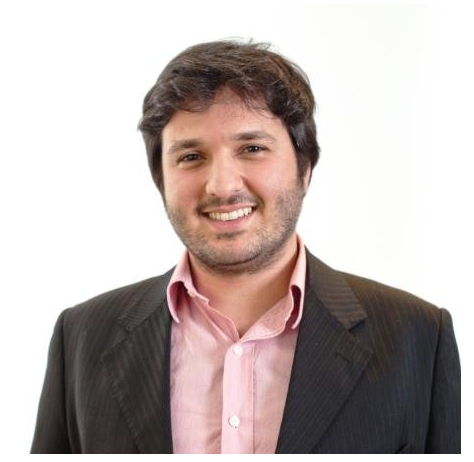Round Table on "The Future of Food and Water Security in the MENA Region - Concepts and Analysis"
With Rabi Mohtar, Bassel Daher and Martin Keulertz
10:00 - 12:00, OCP Policy Center, Rabat, Morocco
The session will present the challenges and opportunities to achieve food security in the MENA region. The three presenters will deliver talks on the current state of food and water security in the MENA region (Dr Mohtar and Dr Keulertz) and how to utilise opportunities for improved management of increasingly scarce resources (Mr Daher). Dr Mohtar will highlight why a integrated management approach is an imperative for future management options. Dr Keulertz will present on the vulnerability of the MENA region with respect to global supply chains and global agricultural policy. Finally, Mr Daher will show how decision-making tools can be used to overcome resource scarcities and improve existing management approaches.
The seminar will build on the proceedings of several international meetings such as the Bonn Nexus Conference of 2011, the World Economic Forum Water Initiative (2007-2010), the Doha Food Security Conference in Drylands of 2012 and the Sustainability in the Nexus Conference in 2014. The goal of the meeting is to interactively engage with members and guests of the OCP Policy Center to discuss and debate drivers of change for food and water security.
Keep me informed
-

Rabi Mohtar
Professor Mohtar is the holder of TEES Endowed Professor at Texas AM University, College Station, USA. He is the Founding Director of Qatar Environment and Energy Research Institute (QEERI) a member of Qatar Foundation, Research and Development and the Founding Director Strategic Projects at Qatar Foundation Research and Development. He was also the inaugural Director of the Global Engineering Programs at Purdue University, Indiana USA. He co-founded the Environmental and Ecological Engineering Division at Purdue University.
Professor Mohtar’s research focused on conserving natural resources (including land, water, air, and biological resources) that face global challenges such as increasing food and water supplies for a growing population. He was a pioneer in developing a conceptual and modeling framework for the Water – Energy Food Nexus and linking science to policy. He developed environmental and natural resources conservation engineering programs that evaluate the environmental impacts of land use and water management; developed innovative soil and groundwater remediation technologies; applied numerical methods to biological engineering systems; characterized the soil water medium at the pedon, field, and watershed scales. He also designed and evaluated international sustainable water management programs that deal with population growth and water shortage conditions in arid climates. His research has resulted in improved methods for environmental and natural resources engineering, many of which have been adopted by other professionals and agencies internationally.
-

Bassel Daher
Bassel Daher is currently a Research Associate at Qatar Foundation R&D. During his career, his work has been geared towards creating policy-oriented research in the areas of natural resource management and environmental sustainability. He received his Master of Science in Engineering from Purdue University in 2012. His research work at Purdue focused on quantifying the interlinkages between water, energy and food systems. He also examined the effects of climate change, growing population, changing economies, international trade, among others on the three interconnected systems.
As part of his research activity at Purdue, Daher developed a scenario-based framework for integrative planning for national resources. Based on the developed framework, he designed a tool (WEF Nexus Tool), which allows scientists and policy makers to create and assess scenarios that define different national resource allocation strategies. He consequently joined Qatar Foundation and worked on developing a food security focused case study for Qatar, based on the established framework. The study helped to quantify the amount of resources needed for possible food self-sufficiency goals, and provided an understanding of the constraints that might surface in such dry areas.
Daher also recently contributed with his research work as a young scientist to different chapters of the upcoming UN Global Sustainable Development Report and co-authored a report on “Renewable Energy and the Water, Energy, and Food Nexus” for the International Renewable Energy Agency (IRENA).
-

Martin Keulertz
Dr Martin Keulertz is a post-doctoral research associate in the Department for Agricultural and Biological Engineering at Purdue University in Indiana (United States). He is part of the core water-energy-food nexus team around Prof Rabi Mohtar (Texas A&M) to develop and implement a nexus tool in the MENA region and Sub-Sahara Africa. Prior to joining Purdue, he received his PhD from King’s College London in which he analysed the role of water resources in Foreign Direct Investment in African agriculture. During his PhD research, he carried out fieldwork in 15 MENA and SSA countries to empirically investigate the risks and opportunities of FDI in agriculture.
Martin has published several peer-reviewed articles in journals, books and conference proceedings. In 2012, Water International selected his co-authored article on the role of corporates in global ‘virtual water’ trade as paper of the year. He further led the editing process of the Handbook of Land and Water Grabs in Africa: foreign direct investment and food and water security published by Routledge in 2013.
Martin is a member of the London Water Research Group chaired by Prof Tony Allan of King’s College London. He has given numerous talks at international conferences, universities and for governments and international organisations. He worked for Dresdner Bank in Germany, consulted energy utility companies, development agencies and the United Nations on issues around the green economy. His research interests centre around the water-energy-food nexus with reference to the West Asia/North Africa region, ‘virtual water’, the impact of global economic change on global agricultural trade and food systems, Sub-Sahara African agriculture and water accounting methods.









